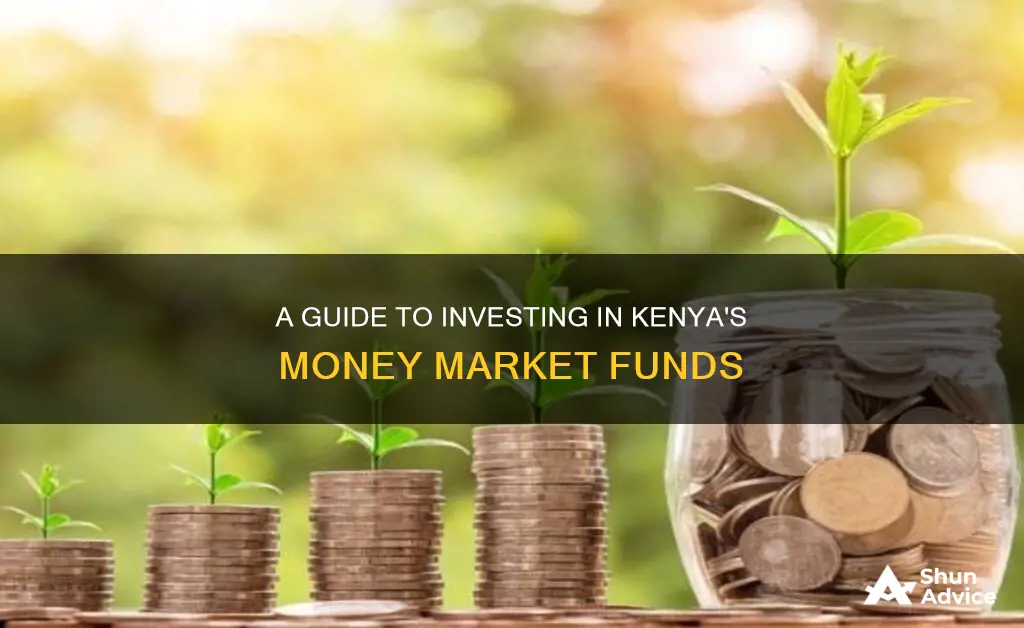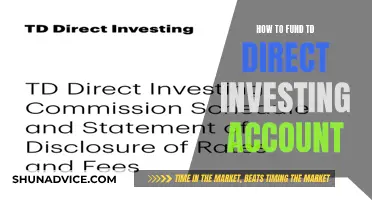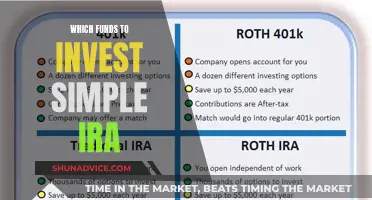
Money Market Funds (MMFs) are a popular investment vehicle in Kenya, offering a high degree of safety and relatively high returns compared to traditional savings accounts. MMFs invest in highly liquid securities such as cash equivalents, government securities, and highly-rated debt-based securities. In Kenya, MMFs are regulated by the Capital Markets Authority (CMA), providing investors with protection and transparency. With low minimum investment amounts, MMFs are accessible to a wide range of investors, including those with short-term investment goals or a preference for stable investments. This makes them an attractive option for those seeking to grow their savings while managing risk and provides an opportunity to diversify one's investment portfolio.
| Characteristics | Values |
|---|---|
| Initial Investment Amount | As low as KES 500 |
| Minimum Top-Up Amount | KES 1,000 |
| Liquidity | Easy access to funds |
| Returns | Competitive, stable, higher than savings accounts |
| Risk | Low |
| Regulation | Regulated by the Capital Markets Authority |
| Management | Managed by experienced professionals |
What You'll Learn

How to choose a good fund manager
Money Market Funds (MMFs) are a popular investment vehicle in Kenya, offering high liquidity, safety, and better returns than traditional savings accounts. When choosing a good fund manager for your MMF, here are some key considerations:
- Experience and Track Record: Look for fund managers with significant industry experience, preferably with a successful track record of at least 10 years as an analyst or manager and 5 years as a portfolio manager. Evaluate their performance by examining the records of their previous funds and how they compare to their peers.
- Regulatory Compliance: Ensure the fund manager is licensed and regulated by the Capital Markets Authority (CMA) of Kenya. This provides assurance that they operate within the legal and ethical framework, protecting your interests as an investor.
- Investment Strategy: Understand the fund manager's investment strategy and ensure it aligns with your financial goals. Different fund managers may have different approaches, so choose one whose strategy matches your risk tolerance, investment horizon, and expected returns.
- Performance and Returns: Assess the fund manager's historical performance and the returns they have generated for their investors. Look for consistent and stable returns, but remember that past performance doesn't guarantee future results.
- Fees and Costs: Fund managers typically charge annual management fees. Compare the fees across different fund managers and ensure you understand all associated costs. While fees shouldn't be the sole deciding factor, it's important to consider the value you're getting for the fees charged.
- Investor Services and Support: Choose a fund manager that offers a high level of investor support and communication. This includes providing regular updates, transparent reporting, and prompt responses to your queries.
- Reputation and Trustworthiness: Select a fund manager with a solid reputation for integrity and trustworthiness. Look for testimonials, reviews, and feedback from their existing or past investors to gauge their level of satisfaction.
- Investment Options and Flexibility: Consider the range of investment options offered by the fund manager. Some managers may specialize in specific types of investments, while others provide a more diverse set of choices. Choose a manager whose offerings align with your investment preferences and provide the flexibility you need.
- Minimum Investment Requirements: Different fund managers may have varying minimum investment requirements. Ensure the manager you choose aligns with your financial capabilities and investment plans.
- Risk Management: Understand how the fund manager approaches risk management. Assess their ability to navigate market cycles and adjust their strategies to mitigate risks while pursuing your investment goals.
Unlocking Carlyle Funds: A Guide to Smart Investing
You may want to see also

Understanding the Money Market Funds ecosystem
Money Market Funds (MMFs) are a popular investment vehicle in Kenya, offering investors access to highly liquid securities such as cash equivalents, government securities, and highly-rated debt securities. With their high degree of safety and relatively high returns compared to traditional savings accounts, MMFs have become an attractive option for those seeking to grow their savings with managed risk.
The MMF ecosystem in Kenya is well-structured and regulated, providing investors with a secure environment. Here's a closer look at the key players and their roles:
- Fund Management Companies: These are licensed financial institutions that establish and manage MMFs. They are responsible for developing investment strategies, selecting securities, and overseeing the fund's operations. Fund management companies must be licensed by the Capital Markets Authority (CMA) to operate MMFs.
- Investors: Individuals contribute their capital to the fund, becoming unit holders. They benefit from the fund's diversified investment portfolio and the expertise of professional fund managers. The minimum investment amount varies across different MMFs, with some funds requiring as little as KES 500 or 1,000.
- Fund Managers: Professional fund managers are responsible for investing the pooled funds in various low-risk, short-term securities. They have a fiduciary duty to act in the best interests of the investors and are licensed and regulated by the CMA.
- Custodian Banks: These banks act as custodians, holding and safeguarding the investors' funds. They release the funds for investment as per the fund manager's instructions and the fund policy. The custodian banks are also approved by the CMA.
- Trustees: Trustees are typically banks or financial institutions that look out for the investors' interests. They hold the fund manager and custodian accountable and act as whistleblowers in case of any suspected fraud or malpractice. The CMA vets the trustees chosen by the fund manager.
- Auditors: Auditors review the fund's financial statements, which investors can then use to assess the performance of the MMF.
- Capital Markets Authority (CMA): The CMA is the regulatory body overseeing the Kenyan capital markets. It establishes regulations for MMFs, ensuring transparency, fair dealing, and investor protection. The CMA also prescribes guidelines for the types of assets MMFs can invest in, focusing on low-risk and high-quality securities. Additionally, it requires MMFs to post their daily returns in local newspapers, providing transparency and helping investors make informed decisions.
This well-defined ecosystem, with its multiple layers of accountability and oversight, contributes to the low-risk nature of MMFs in Kenya. The involvement of professional fund managers, custodians, trustees, and auditors provides investors with confidence and peace of mind.
Managed Funds: Choosing and Investing in a Smart Way
You may want to see also

The benefits of investing in Money Market Funds
Money Market Funds (MMFs) are currently one of the most popular investment vehicles in Kenya. Here are some of the benefits of investing in Money Market Funds:
High Liquidity and Low Risk
MMFs invest in highly liquid securities like cash, cash equivalents, and high-rated debt-based securities with short-term maturities, usually 13 months or less. This means that investors can easily buy and sell these funds with minimal impact on their overall value. The short durations of these securities also limit a money market fund's sensitivity to interest rate risk.
Capital Preservation and Safety
The funds are considered low-risk investments due to their focus on highly-rated securities, which offer a high degree of safety. The Securities and Exchange Commission (SEC) mandates that only securities with the highest credit ratings are available for purchase in money market funds, creating a degree of safety not found in other fixed-income investments.
Competitive Returns
Money market funds offer higher returns than traditional savings accounts and are a great way to hedge against inflation. The fund managers can diversify the underlying investments, resulting in equitable returns for investors.
Professional Management and Diversification
MMFs are managed by experienced professionals who make investment decisions based on extensive research and continuous monitoring of the market. This provides investors with access to a broader range of securities than they would have when investing alone.
Low Minimum Investment and Costs
Most MMFs have low minimum investment amounts, making them accessible to a wide range of investors. The large amount of funds managed by fund managers also leads to very low costs per investor, achieving economies of scale in research, transactions, and investments.
Municipal Mutual Funds: A Smart Investment Strategy
You may want to see also

How to open an investment account
Opening an investment account with a Money Market Fund (MMF) in Kenya is a straightforward process. Here is a step-by-step guide on how to get started:
- Research and Compare Funds: Before investing, it is important to research and compare different MMFs in the market. Consider factors such as performance history, fees and charges, investment strategy, and liquidity options. Look at the fund's historical returns, keeping in mind that past performance does not guarantee future results. Compare the fee structures of different funds and choose one that aligns with your budget. Understand the types of assets they invest in and their risk tolerance.
- Choose a Reputable Fund Management Company: Select a licensed and reputable fund management company that aligns with your investment goals. Consider their experience, track record, and the investment options they offer. Review their websites, which usually provide detailed information about their MMFs, including performance data, fees, and investment strategies.
- Gather the Required Documents: To open an investment account, you will typically need a valid government-issued ID (national ID card or passport), proof of address (such as a recent utility bill or bank statement), and a completed account opening form provided by the fund management company.
- Determine the Minimum Investment Amount: Different MMFs have varying minimum investment amounts. Some funds require a low minimum amount, making them accessible to small investors, while others may require a larger initial investment. Choose a fund that fits your budget and investment goals.
- Open the Investment Account: Approach your chosen fund management company either through their online platform or by visiting their branch office. Provide the required documents and complete the necessary paperwork. You will typically need to fill out an account opening form with your personal information and investment preferences.
- Deposit Funds: Once your account is opened, deposit your funds into the investment account. Most MMFs allow electronic fund transfers through bank transfers, mobile money platforms, or online payment gateways. Some funds may also accept cheques or cash deposits.
- Monitor and Manage Your Investment: Regularly review your investment performance by tracking it through online portals provided by the fund management company. These portals allow you to access account statements and monitor your fund's performance. Consider reinvesting your earnings to benefit from compound interest, which can boost your investment growth over time. Stay informed about market trends and economic news to make informed decisions.
By following these steps, you can successfully open an investment account with a Money Market Fund in Kenya and take control of your financial future. Remember to do your research, compare different funds, and choose a reputable fund management company that aligns with your investment goals and budget.
SS Funds: Where Are Your Contributions Invested?
You may want to see also

How to monitor and manage your investment
Once you've invested in a money market fund, it's important to monitor your performance regularly. Most fund management companies provide online portals where you can access account statements, track your fund's performance, and even initiate transactions like redemptions. Here are some tips for monitoring and managing your money market fund investment:
- Review your statements regularly: This will help you track the performance of your investment and ensure everything is in order.
- Reinvest your earnings (optional): Consider reinvesting your earnings to benefit from compound interest, which can accelerate your investment growth over time.
- Review your investment goals regularly: As your financial goals and circumstances change, you may need to adjust your investment strategy or allocation within your portfolio.
- Stay informed about market trends: Keeping an eye on economic news and trends can help you make informed decisions about your investment.
- Review past performance: While past performance is not a guarantee of future results, it can provide some insight into a fund's historical returns and management style.
- Compare with benchmarks: Compare the fund's performance to relevant benchmarks, such as the average yield of money market funds in Kenya or the return on a fixed deposit.
- Understand the fees: Money market funds typically have management fees, which cover the cost of operating the fund. Some funds might also have entry/exit fees or performance fees. Compare the fee structure of different funds to find one that aligns with your budget.
- Evaluate the fund's investment strategy: Different money market funds invest in a variety of assets with varying risk profiles. Some funds might prioritize high liquidity by investing in very short-term government securities, while others might seek slightly higher returns by including some corporate debt in their portfolio.
- Consider your budget: The minimum investment amount varies depending on the money market fund. Choose a fund that aligns with your current investment budget.
- Evaluate access to your funds: Some money market funds offer daily or weekly redemptions, while others might have slightly longer redemption periods. Consider your liquidity needs and choose a fund that provides the desired level of accessibility.
- Consult a financial advisor: Consulting with a qualified financial advisor can be beneficial. They can assess your individual circumstances, risk tolerance, and financial goals to recommend money market funds that align with your investment strategy.
Pension Funds: Where Are Government Investments Directed?
You may want to see also
Frequently asked questions
A Money Market Fund is a pooled investment vehicle that offers investors easy access to short-term, highly liquid assets. It is a low-risk investment option that provides access to a diversified portfolio of securities, including treasury bills, fixed deposits, and high-grade corporate debt.
First, research and compare different Money Market Funds available in Kenya by considering factors such as performance history, fees, investment strategy, and liquidity. Once you've chosen a fund that aligns with your goals, open an investment account with the fund management company, providing the necessary documentation and meeting the minimum investment amount. You can then deposit funds and start monitoring and managing your investment.
Money Market Funds offer a combination of safety, liquidity, and competitive returns. They provide access to a diversified portfolio of low-risk, high-quality assets, allowing investors to preserve capital while earning returns that typically outperform traditional savings accounts. The funds are also easily accessible, with some offering daily or weekly redemptions. Additionally, investors benefit from professional management, as experienced fund managers handle the selection of suitable investments and risk management.







